Paying homage to the women who raised her
By Maya Rowencak
Food was important to me as a child. My mother always fed me. But there’s one moment that sticks in my head: eating a fish head.
Now, I’m as American as you can possibly imagine. My mother used to say I was “bastos” and “you’re just like your father” and “(insert bad word in Tagalog)” when I did something “inappropriate.” The most Filipino thing I ate regularly was rice and ‘patis’ (fish sauce). But eating a fish head, by American standards, is considered disgusting. I wouldn’t dare tell my friends I eat a fish head in fear of being tormented even more than I was.
She told me, “Boojie (that’s my nickname), it’s good.” Really, it’s the best part of the fish. I obliged. She dug out pieces of meat from the face, the eye, pressed some rice with it, and with her thumb pushed it in my mouth. I was maybe 9 years old at the time. It was odd to have my mom feed me with her hands but it was okay, it made me feel like a baby. We all love those moments, no?
My mother chose my name Maya to represent both my cultures: the Russian ballerina Maya Plisetskaya and the national bird of the Philippines. I was also named also after both my grandmothers: Katrina Ariane.
I first set foot on the island of Luzon when I was 7. My mother’s family lived near the Mother of Perpetual Church in Baclaran. I remember the smells, the ants that bit my legs, the calamine lotion, the man yelling ‘balut,’ I remember being baptized there.
I remember the blind man begging outside of the church. He had no legs and flies danced around his sunburnt head. I was so frightened and asked my mom where his legs were. She said he didn’t have any as she gave the man money in his hand. I remember her also saying, “I wish God would just give these people a break in life.”
If she saw a child begging, she pulled out her wallet. To her, it could have been her “Boojie.”
Fast forward, I moved to New York City, lived by myself, and was independent of my mother. Out of the blue, my mom was rushed to the hospital. She died three days later.
From that moment, I felt I had lost my family and lost my Filipino ties. No one would call me ‘anak’ or tell me to pray to St. Anthony or St. Raphael. I would never eat her chicken adobo again. A year later, I went to the Philippines longing to spend Christmas with children who didn’t have a mother. Instead of being called ‘anak,’ the children called me ‘ate.’ They also used to drag to me to pray the rosary and go to church, just like my mother did.
Back in NYC, my aunt told me at dinner, “You know, you remind me a lot of your Lola Januaria (Ariane).”
“How so?” I didn’t know much about her.
“Your ‘lola’ used to feed the poor children in the neighborhood. She was so loved that when she died, they had busloads of people come to pay their respects.”
I had no idea.
She said, “You are your ‘lola.’” I learned that I was tied to my roots.
To this day, I haven’t eaten a salmon head, but what I wouldn’t give to have my mom feed me. Because it was in that moment, I learned what it felt like to be loved and how to share this love with others.
Filipino American-Ukrainian Maya Rowencak is the founder of Maya’s Hope, a charity organization inspired by her mother and grandmother’s love for children. She delivered this speech on accepting her award as one of The Outstanding Filipino Americans in New York dedicating the award to her mother Maria Milagros Cruz Rowencak and ‘lola’ Januaria Apolinario Cruz.



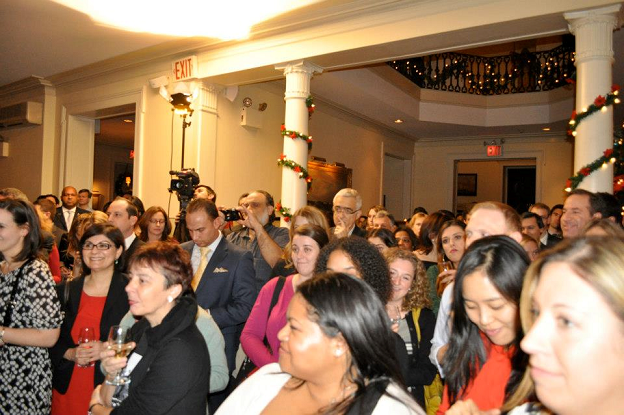
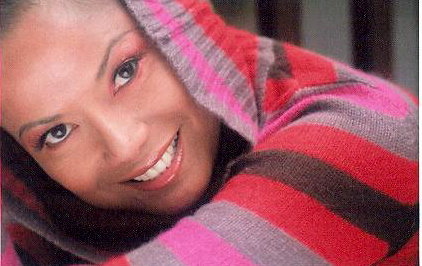
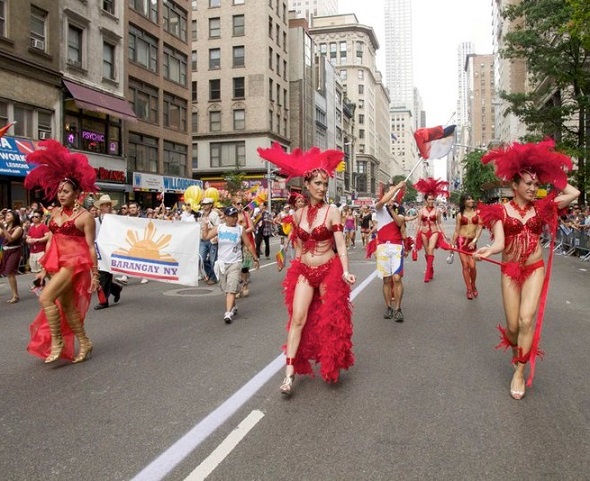


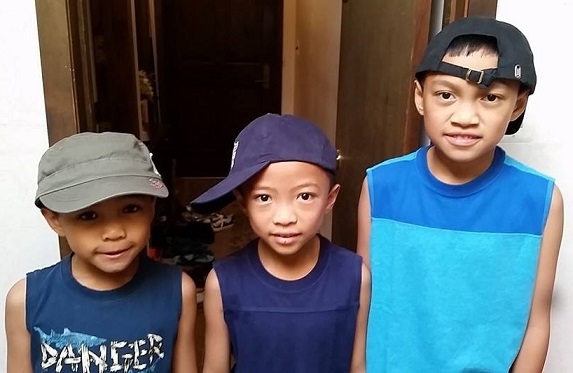

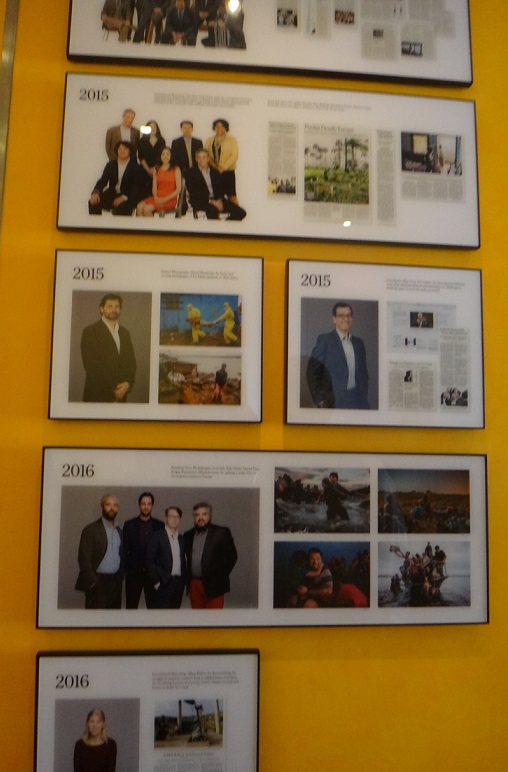

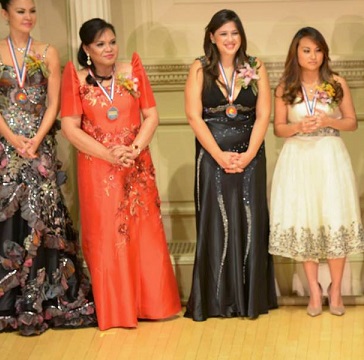

What a truly inspiring story that tells of Filipino culture and habits. It reminds me also of my childhood in Marikina. she really deserves the award from TOFA.
.